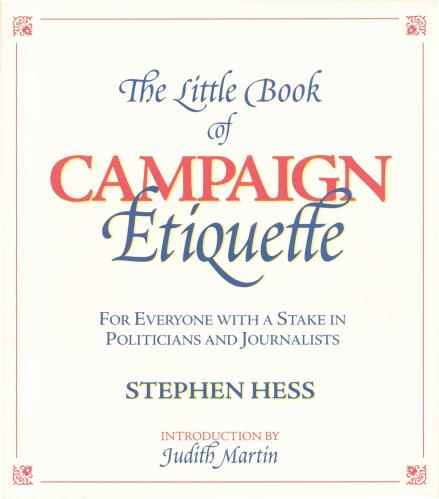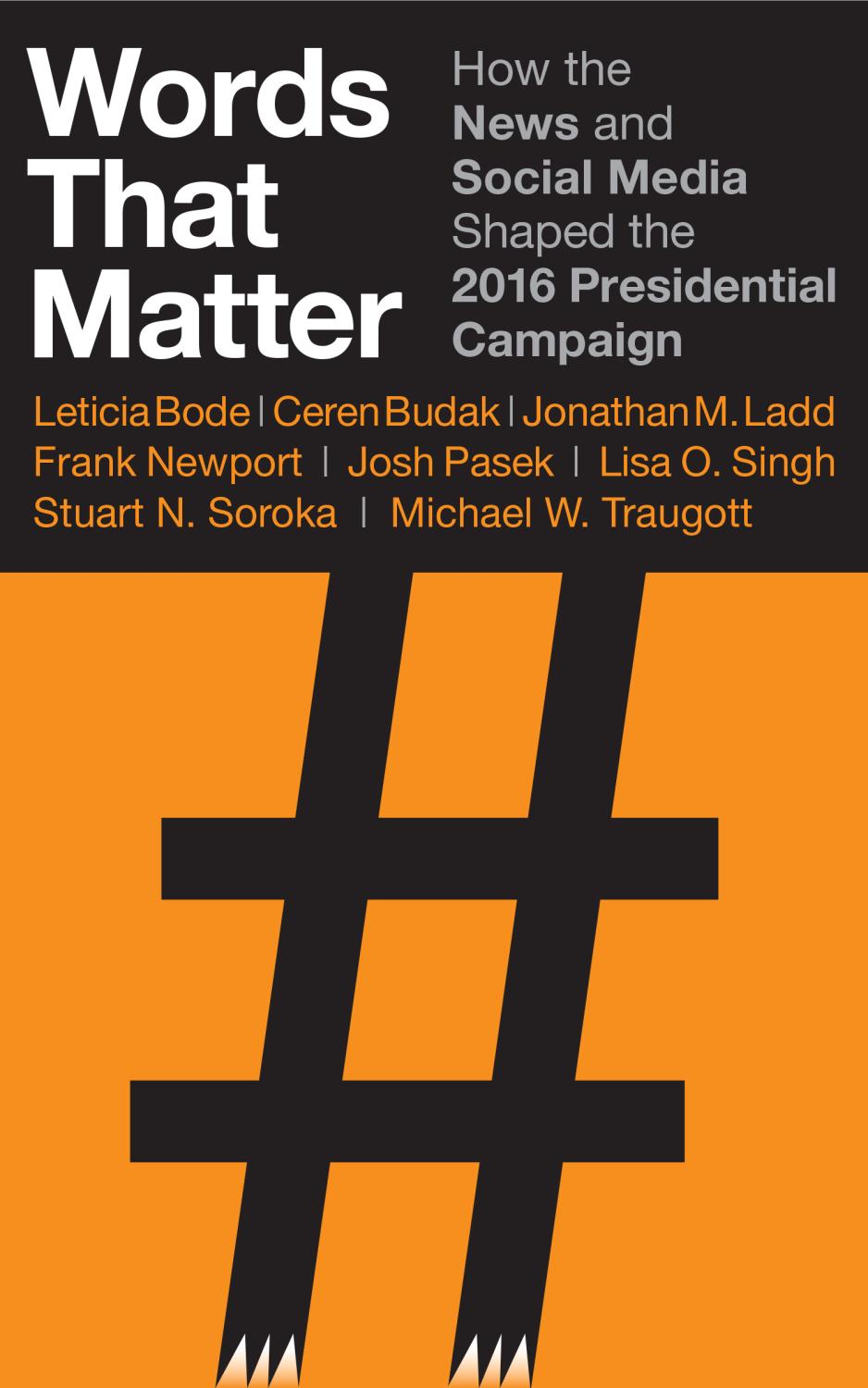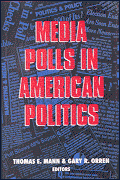


Book
How the 2016 news media environment allowed Trump to win the presidency
The 2016 presidential election campaign might have seemed to be all about one man. He certainly did everything possible to reinforce that impression. But to an unprecedented degree the campaign also was about the news media and its relationships with the man who won and the woman he defeated.
Words That Matter assesses how the news media covered the extraordinary 2016 election and, more important, what information—true, false, or somewhere in between—actually helped voters make up their minds. Using journalists’ real-time tweets and published news coverage of campaign events, along with Gallup polling data measuring how voters perceived that reporting, the book traces the flow of information from candidates and their campaigns to journalists and to the public.
The evidence uncovered shows how Donald Trump’s victory, and Hillary Clinton’s loss, resulted in large part from how the news media responded to these two unique candidates. Both candidates were unusual in their own ways, and thus presented a long list of possible issues for the media to focus on. Which of these many topics got communicated to voters made a big difference outcome.
What people heard about these two candidates during the campaign was quite different. Coverage of Trump was scattered among many different issues, and while many of those issues were negative, no single negative narrative came to dominate the coverage of the man who would be elected the 45th president of the United States. Clinton, by contrast, faced an almost unrelenting news media focus on one negative issue—her alleged misuse of e-mails—that captured public attention in a way that the more numerous questions about Trump did not.
Some news media coverage of the campaign was insightful and helpful to voters who really wanted serious information to help them make the most important decision a democracy offers. But this book also demonstrates how the modern media environment can exacerbate the kind of pack journalism that leads some issues to dominate the news while others of equal or greater importance get almost no attention, making it hard for voters to make informed choices.
Related Books

Stephen Hess JUDITH MARTIN
March 1, 2000

Thomas E. Mann, Gary R. Orren
September 1, 1992

Stephen Hess
December 1, 1995
“Yes, Hillary Clinton’s emails loomed much larger than most of the important issues in the 2016 campaign. Words That Matter is a careful, meticulously researched study about the way campaigns are covered and understood. The authors explain how questions that will matter to voters in the long term get pushed to the margins. This is an essential book for producers of the news, but also for citizens trying to sort their way through our baffling new media environment.”
—E.J. Dionne, Jr., senior fellow, Brookings Institution; author of Code Red: How Progressives and Moderates Can Unite to Save Our Country
“Almost everyone has an opinion about what happened in the 2016 election, but few have real data. Words That Matter has plenty, and the authors of this valuable book use a unique combination of five different data sets to make an evidence-based case that the Trump campaign’s effort to ‘flood the zone’ worked, while Hillary Clinton’s prospects were undermined by sustained media attention to her emails. A powerful analysis of a still poorly understood election and an important book for everyone interested in the intersection among American politics, news, and media.”
—Rasmus Nielsen, director, Reuters Institute for the Study of Journalism, Oxford University
“Words That Matter is an insightful, methodologically innovative exploration of the ways in which the news and social media shaped the Clinton-Trump contest.”
—Kathleen Hall Jamieson, Elizabeth Ware Packard Professor of Communication, University of Pennsylvania; author of Cyberwar: How Russian Hackers and Trolls Helped Elect a President: What We Don’t, Can’t, and Do Know
“Words That Matter is a must-read for anyone interested in presidential campaigns and media influence. Drawing on an impressive array of traditional media and social media data along with survey responses over the course of the 2016 election, the authors provide ample evidence about how and why media may have affected the outcome even when citizen perceptions were not reflective of news attention.”
—Erika Franklin Fowler, director, Wesleyan Media Project; associate professor of government, Wesleyan University
“The authors have compiled the authoritative account of what journalists wrote, and what voters heard, about Hillary Clinton and Donald Trump throughout the 2016 presidential election campaign. They document the very real effects of media coverage on the campaign and show how reporters who shaped the coverage of big stories, such as James Comey and the FBI investigation into Hillary Clinton’s email, could have shaped the outcome. Every political reporter in the country should read this book and grapple with the crucial role that they play in American democracy.”
—G. Elliott Morris, data journalist
Leticia Bode is assistant professor of Communications, Culture, and Technology at Georgetown University; Ceren Budak is assistant professor in the School of Information at the University of Michigan; Jonathan M. Ladd is associate professor of Public Policy and Government at Georgetown University and a nonresident senior fellow in Governance Studies at Brookings; Frank Newport is editor in chief of Gallup, Inc.; Josh Pasek is assistant professor of communication studies at the University of Michigan; Lisa O. Singh is associate professor of computer science at Georgetown University; Stuart N. Soroka is Michael W. Traugott Collegiate Professor of communication studies and political science at the University of Michigan; and Michael W. Traugott is research professor at the Institute for Social Research and professor of communication studies and adjunct professor of political science at the University of Michigan, as well as a senior scientist at Gallup, Inc.
Fibs, Factoids, and Fictions: Politics Books 2020